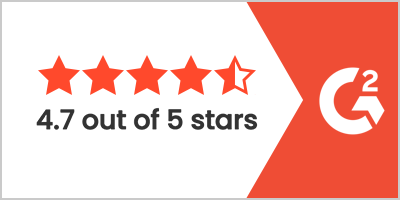Patients are now expecting digital healthcare experiences that mirror their digital retail experiences. With the rapid shift to digital healthcare services, healthcare providers must adapt their communication strategies to meet the evolving demands of patients. This blog post will explore how incorporating multichannel communication options can improve patient experience, retention, and overall health outcomes.
Speaking the Patient’s Language
The pandemic has played a significant role in driving the digital transformation of healthcare, forcing the industry to adapt rapidly to new challenges and patient needs. This acceleration was further fueled by the widespread use of digital tools in other sectors, leading to heightened expectations from patients regarding the services provided by their healthcare providers.
In today's digitally connected world, patients demand greater accessibility to healthcare services, increased convenience in managing their health, and more effective communication with their providers. These expectations stem from their experiences with other industries, where digital solutions have streamlined processes and improved overall customer satisfaction.
To meet these growing demands, healthcare providers must embrace multichannel communication strategies. By offering a variety of communication options, such as phone calls, text messages, emails, and video conferencing, providers can cater to the diverse preferences of their patients. This approach allows patients to choose their preferred method of communication, fostering a more personalized and satisfying experience.
Different Options: The Key to Patient Satisfaction
Offering multiple communication channels is crucial for making patients feel heard and understood. By providing various options, healthcare providers can accommodate the diverse needs and preferences of their patients, leading to consistently successful health outcomes.
Patients do not have one specific way they prefer to communicate with their healthcare provider. Preferences can vary widely, depending on factors such as age, income, and technological proficiency. By adopting a multichannel strategy, healthcare providers can enable patients to choose their preferred communication option(s), fostering a more personalized and satisfying experience.
Start with SMS
While no single channel can serve as a cure-all for patient communication, text messaging is a crucial addition to any multichannel strategy. With its ease and accessibility, SMS can provide patients with instant updates, appointment reminders, and medication support, among other benefits.
There is more on how to effectively implement secure text messaging in healthcare, but below is a general guideline for adopting an SMS patient communication platform.
-
Prioritize SMS integration
-
Train staff on the SMS platform
-
Customize patient preferences
-
Continuously evaluate strategy
Business revenue plays a role in the adoption of new communication modes and SMS is among the most affordable for patients and providers alike. By offering text messaging alongside other channels, healthcare providers can ensure that they are catering to patients from different backgrounds, making their services more inclusive and accessible.
Cohesive Communication Strategies
To develop a successful patient communication strategy, healthcare providers should start by identifying the key touchpoints in the patient care cycle, such as pre-appointment intake, appointments, and medication support. Next, they should consider which communication channels would be most effective at each touchpoint, keeping in mind the diverse preferences of their patients.
Finally, healthcare providers should consciously adopt new communication modes and integrate them into their overall patient communication strategy. Embracing optionality as a framework will help healthcare practices cater to the diverse needs of patients, leading to better health outcomes, improved patient retention, and the ability to attract new patients. Don’t be scared to continuously ask the question “Are you getting the most from your healthcare communication software?”
HipLink can Help
The rise of digital healthcare has forever changed patient expectations, emphasizing the need for healthcare providers to adopt multichannel communication strategies. By offering multiple communication options, providers can better meet the needs of their diverse patient populations, improving patient satisfaction, retention, and health outcomes. HipLink can help with that mission of communication empowerment.
One solution that can help healthcare providers streamline their communication strategies is HipLink's HipText+ Desktop SMS Chat Service. As a business SMS text software platform, HipText+ enables 2-way text conversations from a desktop PC interface, making it easier than ever for healthcare providers to send a text message from a computer to a cell phone. With a 98% read rate, SMS messaging is an essential tool in any healthcare provider's communication strategy.
By adopting HipText+ as part of their multichannel communication strategy, healthcare providers can have to engage in real-time conversations with patients, improving engagement and satisfaction. As the healthcare industry continues to evolve, embracing solutions like HipText+ and a cohesive patient communication strategy will be essential for success. Contact HipLink today to find out how they can help you with your most important communication needs.



